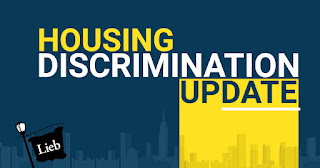President Trump issued Executive Order 14281, which purports to eliminate disparate impact discrimination, but can a President do that?
Disparate impact discrimination refers to discrimination that is proven by the existence of a discriminatory outcome, but instead of being based on a discriminatory act undertaken with discriminatory intent, it is based on a neutral policy that is not required to be proven to be based on discriminatory intent.
3 Takeaways from the EO:
- Elimination of Disparate Impact: The order's primary goal is to eliminate the use of "disparate-impact liability" in federal contexts.
- Revocation of Regulatory Approvals: The order revokes specific presidential approvals of Department of Justice Title VI (i.e., funding recipients prohibition on discrimination based on race, color, and national origin) regulations related to disparate impact.
- Review and Revision of Existing Regulations and Cases: Federal agencies, including the EEOC and DOJ, are tasked with reviewing and revising existing regulations, pending investigations, and consent judgments that rely on disparate-impact theory.
However, eliminating disparate impact is a topic for Congress, not the President.
In fact, this EO is inconsistent with Statutory/Case Law and rises the potential for lawsuits. To be clear, Title VI, which is the main thrust of this EO, can be established by disparate impact analysis based on Supreme Court precedent from Lau v. Nichols. As to Employment Discrimination (i.e., Title VII of the Civil Rights Act of 1964), disparate impact is also a valid legal theory for proving employment discrimination based on the Supreme Court in cases like Griggs v. Duke Power Co. Similarly, the Fair Housing Act and the Equal Credit Opportunity Act also recognize disparate impact. This order attempts to undermine these protections, potentially leading to increased employment, education, housing, and credit discrimination. Moreover, the Executive Order's argument that disparate-impact liability violates equal protection is flawed. Equal protection aims to prevent discriminatory outcomes, not give paths to discriminate.
That is all not to say whether the Trump Administration is right or wrong on their policy initiative to revoke disparate impact analysis while focusing on a meritocracy. Instead, this is to say that this should not be undertaken by an ineffective Executive Order, but instead it needs to happen legislatively through Congress. By doing it this way, the Trump Administration is going to create confusion for business that results in more discriminatory lawsuits because decision-makers will trust the EO to do what it purports to do while it likely does not much of anything at all.












